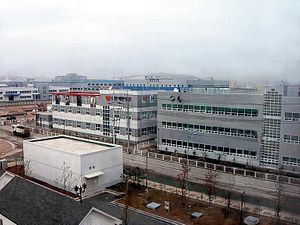The North Korean nuclear issue entered a new phase after Pyongyang held its fourth nuclear test on January 6, 2016, followed by its sixth long-range missile test on February 7. Although North Korea declared “a successful hydrogen bomb test,” it seems more likely that they detonated a boosted fission bomb. This suggests, however, that Pyongyang may soon have hydrogen bombs, even if they don’t now. If the current pace of nuclear weapon development is allowed to continue, the outlaw state will probably emerge in 10 years as a formidable nuclear power, with at least 50 atomic and hydrogen bombs and operational mobile launchers (TELs), submarine-launched ballistic missiles (SLBM), inter- continental ballistic missiles (ICBM), and so forth. Then South Korean security will fall into a deeper swamp of vulnerability, while the Nuclear Nonproliferation Treaty (NPT) regime, a cornerstone in maintaining the international nuclear order, will suffer a severe jolt.
For the Pyongyang government, solidifying and maintaining the hereditary dictatorship of the “Baekdu bloodline” continues to be the supreme goal. To achieve this end, the regime has concentrated on the reshuffle of ruling elites in the military and the Workers’ Party and on the early deployment of nuclear weapons. In instituting a massive reshuffle of elites, the regime has resumed its traditional “party-first” politics and tamed military generals by “insignia politics,” repeated promotion and demotions. This process has of course involved ruthless purges and the execution of top-ranking party and military officers.
Meanwhile, the regime has been striving to develop smaller and lighter nuclear warheads together with the frequent test-firing of a variety of delivery vehicles. The regime is also carrying out a step-by-step plan to operate a full-fledged nuclear force. It recently founded the Strategic Forces, while refurbishing governmental organizations for nuclear policy decision making, funding, and research and development.
The regime seems to believe that nuclear weapons would bring an internal “halo effect,” enhancing the prestige of the supreme leader, Kim Jong-un. Externally, the North expects nuclear weapons to generate “equalizing effect,” allowing Pyongyang negotiate with the superpower United States on equal terms, as well as a “decoupling effect,” helping cut off reinforcement from U.S. forces in case of Korean contingencies. As for South Korea, nuclear weapons generate a “shadow effect,” helping North Korea gain control over the economically superior South and dominate inter-Korean relations. The North’s die-hard nuclear ambitions come from these beliefs.
Naturally, the response of the government in Seoul as well as the international community was a lot different after the North’s fourth nuclear test. The South Korean government took unprecedentedly strong actions, including a shutdown of the Kaesong Industrial Complex, while calling on the international community to choke cash flows into the North. The UN Security Council adopted Resolution 2270, the toughest-ever non-military sanctions against a specific country. The resolution, passed under Chapter VII Article 41 of the UN Charter, contains rather severe sanctions in the areas of foreign trade, imports and exports related to weapons of mass destruction, banking, finance and so forth, in addition to blacklisting a number of North Korean organizations, groups, and individuals. Undoubtedly, the resolution is far more comprehensive and powerful than the five previous UNSC sanctions resolutions since 2005. In addition, governments such as the United States, Japan, Australia, and the EU, have already taken or are considering independent sanctions.
For now, strength and consistency in the sanctions seems to be the only way to resolve North Korea’s nuclear conundrum, which is becoming an increasingly dangerous devil disrupting world peace and regional stability. Although dialogue and negotiation must be an inevitable process on the way to a nuclear settlement, any nuclear talks without Pyongyang’s being sincere about denuclearization must be a fake dialogue that simply buys the North time and dilutes international collaboration. This is why a strong and consistent international collaboration over sanctions should be an necessary step to destroy the North’s dangerous beliefs about the benefits of nuclear weapons and bring it to a real dialogue.
In this regard, it is fortunate that China, Pyongyang’s largest trading partner, agreed on Resolution 2270, and took independent sanctions on April 5, banning the import of seven raw minerals, including coal and iron ore, from North Korea. These natural resources are the country’s largest source of foreign currency earnings. Even Russia, though differing from the Western countries over the intensity and content of the sanctions, has agreed to a “thorough implementation” of Resolution 2270. The Philippines and Mexico have already confiscated North Korean ships pursuant to the Resolution.
If major countries continue to cooperate in this manner and if Washington follows the same route regardless of the result of the upcoming presidential election, the North Korean nuclear issue may possibly enter a new phase of “real dialogue.” It is needless to say that South Korea, the most immediate would-be victim of the nuclear threat, should concentrate its diplomatic efforts on strong, consistent, and concerted sanctions against North Korea’s dangerous nuclear game.
Kim Tae-woo is Professor at Konyang University, and formerly served as President of Korea Institute for National Unification (KINU).

































